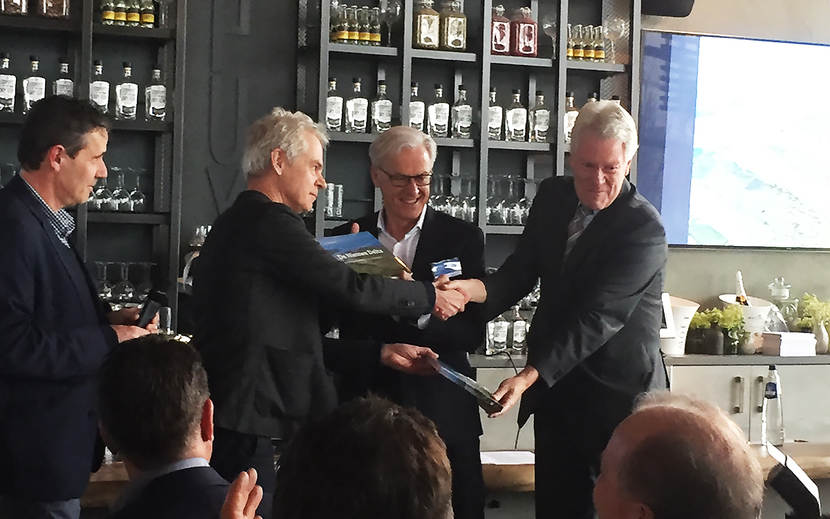Collaboration at annual South-West Delta Working Conference
Under the theme of “collaboration”, some 100 stakeholders attended the annual South-West Delta working conference on 9 February. As in each Delta Programme region, collaboration is vitally important. Partners need one another to achieve the preferential strategy. In the SW Delta, they are faced additionally with the task of resolving the downsides of the Delta Works. The book entitled De Nieuwe Delta [The New Delta] that was presented during the working conference and that advocates a proper incorporation of the restoration of ecological processes could be a source of inspiration in this respect.

Host Ben de Reu, Provincial Executive of the Province of Zeeland, opened the working conference. He called on those attending to stay on course together in the huge tasking of improving the ecological quality of the SW Delta. He indicated that efficient steps are also being taken in the fields of freshwater supply and spatial adaptation. Bianca de Vlieger, the author of De Nieuwe Delta, wondered who feels responsible for the collaboration. In her opinion, many parties involved in the collaboration do not have a clear picture of the “point on the horizon”: What is our ultimate goal, an open or a closed Delta?
Together with Ben de Reu, Delta Programme Commissioner Wim Kuijken accepted the book with the words ‘Many congratulations on this wonderful document.’ The book provides a good insight into many projects ongoing in the region and their interconnectivity. Following a question regarding adaptive delta management and the “point on the horizon”, Wim Kuijken explained that a closed or an open delta is not a goal in itself. ‘We are working with scenarios that are uncertain, and we will determine which measures are advisable within the course we have set. We are now implementing the no regret measures, keeping an eye on the future. The point on the horizon is the structuring of our country in such a manner as to enable it to cope with climate extremes. That is why we are working on flood risk management, freshwater supply, and spatial adaptation.’ When asked what his focus will be after his recent reappointment, Mr Kuijken indicated that we will continue the work that is needed in accordance with the Delta Act. This year, a Delta Plan on Spatial Adaptation will be drawn up as well. In addition, we are working on reinforcing regional clout. ‘I am quite confident that we will be successful in this respect, but we need to uphold this form of collaboration, based on shared ownership.’ Strengthening participation is another point of attention for Mr Kuijken. ‘If you start to fiddle with an area, residents want to be able to have a say in the solution.’
After the plenary session, the participants disseminated into workshops to discuss eco system services, future-proof implementation, collaboration, and clout, adaptive programming, and the involvement of stakeholders.
Leo Adriaanse, SW Delta Programme Manager, called it a day full of energy: ‘I am pleased that the conference attracted so many participants, from municipalities to provinces, entrepreneurs, and environmental and Nature organisations. A lot is going on in the SW Delta, and everyone can learn from one another. I hope that we will retain today’s energy and stay on course, because the SW Delta is more than worth it.’